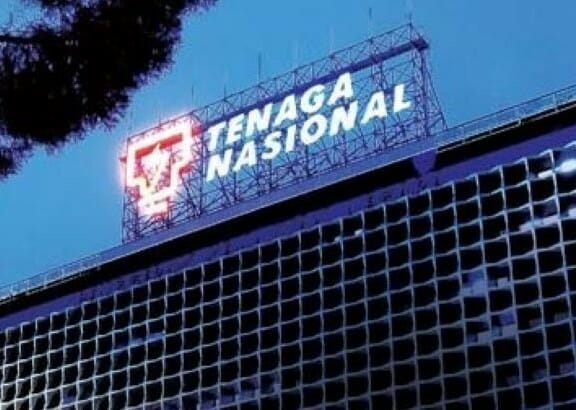RAM Ratings reaffirms TNB’s AAA/Stable/P1 issue ratings on its RM10 billion Islamic MTN (2020/2070), RM5 billion Islamic MTN (2017/2067), and RM2 billion Islamic CP programme. These are premised on the Group’s strategic position as Malaysia’s national electricity company as well as its resilient operating and financial performance.
Besides its near-monopoly over the transmission and distribution of electricity across Peninsular Malaysia and Sabah, TNB also controlled 52.8% of the peninsula’s installed capacity of 26,744 MW as at end-December 2021. The Group serves a crucial function as the sole off-taker of generating capacity and electrical energy produced by independent power producers in Peninsular Malaysia (via Single Buyer – a ring-fenced entity owned by TNB).
Based on the rating methodology for government-linked entities, TNB is highly likely to receive extraordinary government support in the event of financial distress. This expectation is underscored by the Group’s critical role in the Malaysian power sector and its very strong relationship with the Government of Malaysia.
TNB’s resilient financial performance is backed by the incentive-based regulation (IBR) framework as its tariff is cost-reflective and provides stable returns over each three-year regulatory period (RP). Under the current RP3 (2022-2024), the base tariff is set higher at 39.95 sen/kWh (RP2 Extension or 2021: 39.45 sen/kWh) to account for higher fuel cost assumptions while keeping regulatory returns at 7.3%. The framework also guarantees that regulated earnings will reflect annual electricity demand growth of 1.7% for 2022.
The power utility further benefits from an established imbalance cost pass-through (ICPT) mechanism, under which any movement in fuel and generation costs against benchmark levels will be adjusted to its tariffs bi-annually. This protects the Group’s earnings from fuel price volatility. Skyrocketing market fuel prices amid the reopening of global economic activities and the prolonged Russia-Ukraine war have, however, exerted liquidity pressure on the Group given the inherent six-month time lag to recoup payments. This has been reflected in its ballooning trade receivables. The government’s recent announcement of extending electricity subsidies in order to maintain tariffs charged to end-users for 2H 2022 underlines its solid support to the Group. This reaffirms the GoM’s commitment to the ICPT mechanism and the IBR framework – a credit positive as they preserve TNB’s financial stability. In any case, TNB has sufficient rating headroom to gear up for working capital, capital expenditure and investment needs.
TNB delivered a better set of financial results in FY Dec 2021. Its operating profit before depreciation, interest, and tax grew 8.1% y-o-y to RM18.3 bil, thanks to improved electricity sales. The better earnings and higher contributions from joint ventures and associates offset a larger impairment of investment in GMR Energy Ltd, lifting pre-tax profit to RM4.7 bil (FY Dec 2020: RM4.2 bil). Net profit was also up, climbing 6.9% y-o-y to RM3.9 bil for the year.
On foreign shores, TNB is strengthening its foothold in the UK’s renewable energy (RE) space via the newly established Vantage RE Ltd while monetising distressed assets. This is in line with its focus in the UK, Europe and Southeast Asia markets, as well as its efforts to achieve the group-wide target of 8,300 MW of RE capacity by 2025 (end-May 2022: 3,783.5 MW). RAM expects further growth in the Group’s green investments through mergers and acquisitions, asset development and strategic partnerships with leading RE players. Overall, TNB’s international investments remain operationally profitable, although total contributions to the Group’s revenue stayed minimal at 1.4% in FY Dec 2021.
As at end-FY Dec 2021, TNB’s total adjusted debt (including provisions for GAMA Enerji A.S.) rose to RM81.1 bil from RM78.9 bil a year earlier, mainly due to increased borrowings to fund working capital requirements. After factoring in working capital and capital-intensive generation projects and investment plans, our stressed cashflow analysis assumes RM6 bil of net incremental borrowings, including the Group’s recent sukuk issuances totalling to RM5.5 bil. Along with higher projected operating expenses and taxes this year, we expect TNB’s funds from operations debt coverage and gearing to deteriorate to a respective 0.20 times and 1.46 times. These levels remain supportive of its ratings.









